
Richmond: The Gem of Eastern Indiana
Richmond, Indiana, is a charming city nestled in the heart of the Midwest. Founded in 1806, it boasts a rich history and a welcoming community. The city is known for its beautiful architecture, including the historic Starr-Gennett building, which played a crucial role in the early recording industry. Music lovers will enjoy the Starr-Gennett Walk of Fame, celebrating jazz, blues, and country legends. Outdoor enthusiasts will find plenty to do in Richmond. The Whitewater Gorge Park offers scenic trails and the opportunity to explore nature. Thistlethwaite Falls is a must-see for its picturesque beauty. The city also has numerous parks and gardens, such as the Hayes Arboretum, perfect for a relaxing day in nature. Richmond is also a hub for arts and culture. The Richmond Art Museum, one of the oldest in the state, features an impressive collection of American art. The city hosts various events and festivals throughout the year, including the popular Meltdown Winter Ice Festival, which showcases stunning ice sculptures. With its blend of history, nature, and culture, Richmond, Indiana, is a fantastic destination for any traveler.
Local tips in Richmond
- Visit the Starr-Gennett Walk of Fame to learn about the city's rich musical heritage.
- Spend a day hiking through Whitewater Gorge Park for beautiful scenery and fresh air.
- Don't miss the Meltdown Winter Ice Festival if visiting in January.
- Check out the Richmond Art Museum for a dose of American art history.
- Explore the local shops and cafes in the Depot District for unique finds and local flavor.
- Visit Hayes Arboretum for a peaceful retreat into nature.
- Try to plan your visit around one of the city's many festivals to experience local culture.
Richmond: The Gem of Eastern Indiana
Richmond, Indiana, is a charming city nestled in the heart of the Midwest. Founded in 1806, it boasts a rich history and a welcoming community. The city is known for its beautiful architecture, including the historic Starr-Gennett building, which played a crucial role in the early recording industry. Music lovers will enjoy the Starr-Gennett Walk of Fame, celebrating jazz, blues, and country legends. Outdoor enthusiasts will find plenty to do in Richmond. The Whitewater Gorge Park offers scenic trails and the opportunity to explore nature. Thistlethwaite Falls is a must-see for its picturesque beauty. The city also has numerous parks and gardens, such as the Hayes Arboretum, perfect for a relaxing day in nature. Richmond is also a hub for arts and culture. The Richmond Art Museum, one of the oldest in the state, features an impressive collection of American art. The city hosts various events and festivals throughout the year, including the popular Meltdown Winter Ice Festival, which showcases stunning ice sculptures. With its blend of history, nature, and culture, Richmond, Indiana, is a fantastic destination for any traveler.
When is the best time to go to Richmond?
Iconic landmarks you can’t miss
Glen Miller Park
Discover the beauty and tranquility of Glen Miller Park in Richmond, Indiana, a perfect destination for outdoor enthusiasts and families seeking relaxation.
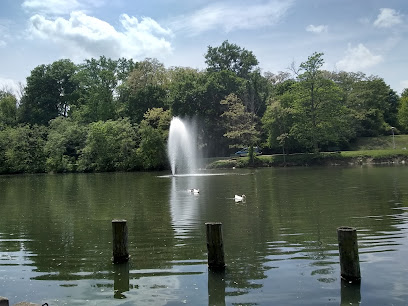
Old Richmond Inn
Discover the flavors of traditional American cuisine at Old Richmond Inn, where every meal is a celebration of local tastes and quality service.
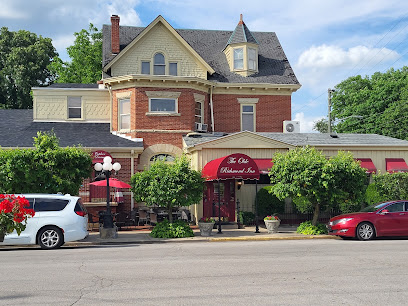
Richmond Parks and Recreation
Discover the serene beauty of Richmond Parks and Recreation, a perfect blend of nature and recreation for all visitors.
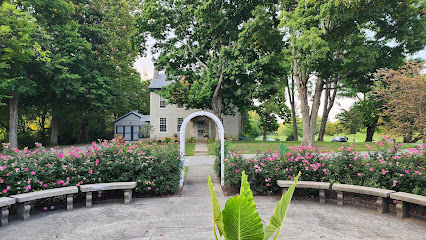
Little Sheba's
Discover the delightful American cuisine at Little Sheba's in Richmond, Indiana, where local charm meets delicious flavors.
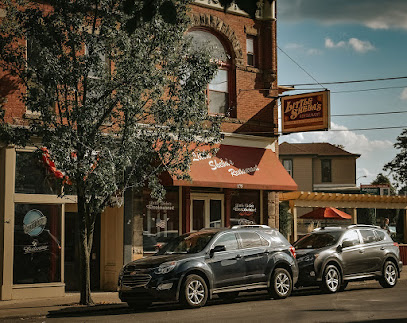
Thistlethwaite Falls
Explore the stunning Thistlethwaite Falls in Richmond, Indiana, where nature's beauty meets tranquil serenity, perfect for outdoor enthusiasts and photographers.
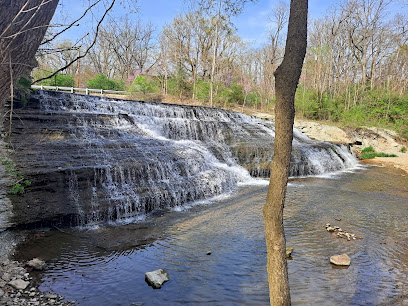
Roscoe's Coffee Bar and Tap Room
Discover Roscoe's Coffee Bar and Tap Room in Richmond, where exceptional coffee meets casual dining in a cozy atmosphere.
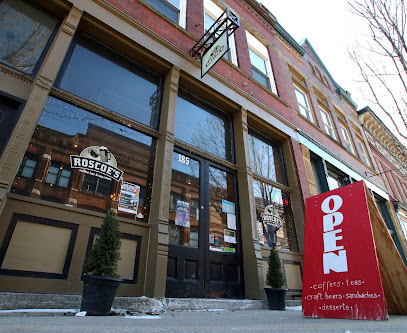
Richmond 40 Bowl
Discover the thrill of bowling at Richmond 40 Bowl, a vibrant athletic club offering fun, food, and unforgettable memories in Richmond, Indiana.
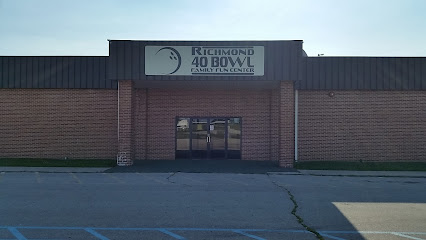
Mancino's Pizza & Grinders
Discover the authentic taste of Italy at Mancino's Pizza & Grinders in Richmond, Indiana, where every bite is a flavorful delight.
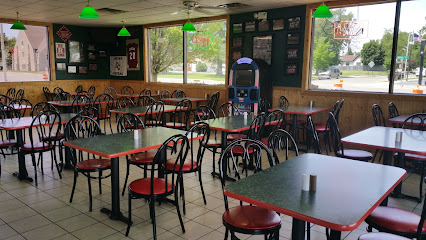
Jack Elstro Plaza
Explore the lush landscapes and vibrant community events at Jack Elstro Plaza, a tranquil park in Richmond, Indiana, perfect for relaxation and recreation.
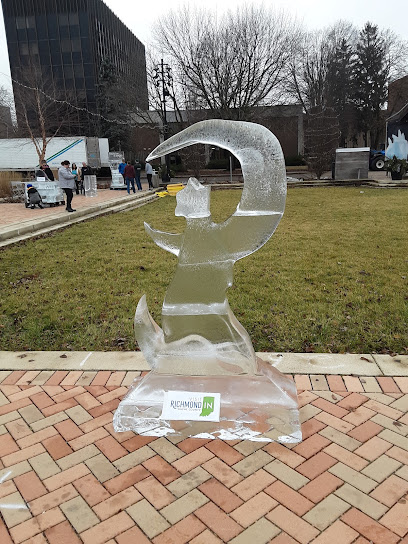
The Cordial Cork
Experience the vibrant flavors of Richmond at The Cordial Cork, a cozy restaurant and bar offering delicious cuisine and a welcoming atmosphere.
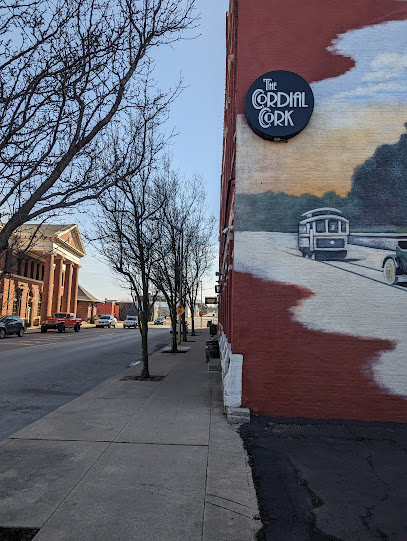
Berties Music Bar
Experience the vibrant ambiance of Bertie's Music Bar in Richmond, Indiana, where delicious pizza meets lively local music for an unforgettable night out.
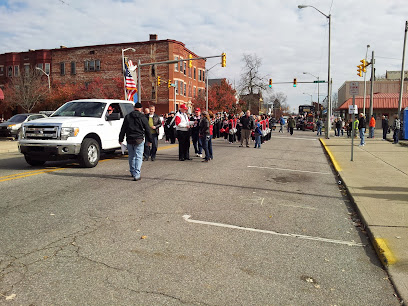
Ullery's Homemade Ice Cream
Experience the sweet side of Richmond, Indiana with delicious hand-crafted ice cream at Ullery's Homemade Ice Cream, perfect for all ages.
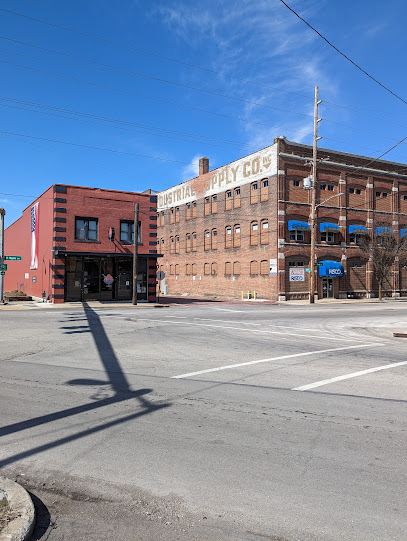
Richmond Civic Theatre
Discover the vibrant arts scene at Richmond Civic Theatre, a non-profit gem offering captivating performances in the heart of Indiana.
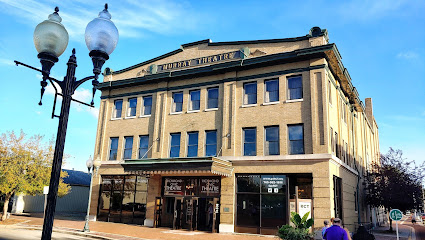
Springwood Park
Discover the natural beauty and recreational charm of Springwood Park in Richmond, Indiana—a perfect destination for relaxation and outdoor fun.
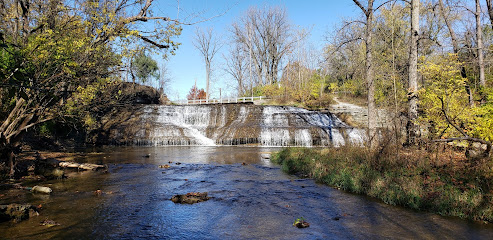
Richmond Rose Garden
Explore the enchanting Richmond Rose Garden, where thousands of roses create a vibrant floral tapestry, perfect for leisurely strolls and peaceful reflection.
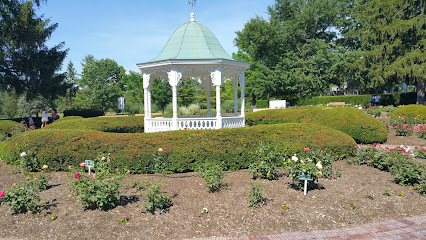
Unmissable attractions to see
Maymont
Explore Maymont, Richmond's exquisite park with stunning gardens, wildlife exhibits, and rich history for a perfect day in nature.
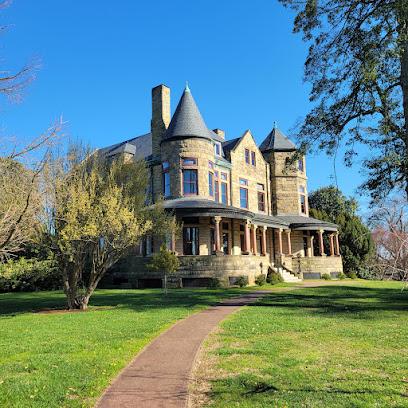
Virginia Museum of Fine Arts
Explore timeless art and vibrant culture at the Virginia Museum of Fine Arts in Richmond, a must-see for art lovers and travelers alike.
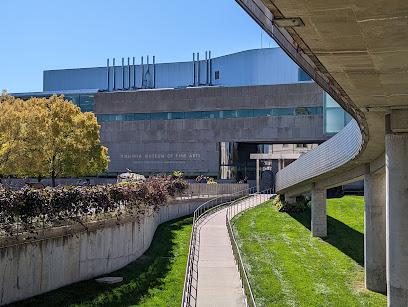
Altria Theater
Discover the historic Altria Theater in Richmond, a premier destination for performing arts with stunning architecture and a rich cultural heritage.
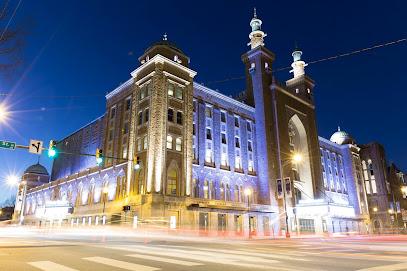
Richmond Raceway
Discover the exhilarating excitement of Richmond Raceway, Virginia's top car racing destination, perfect for racing fans and families alike.
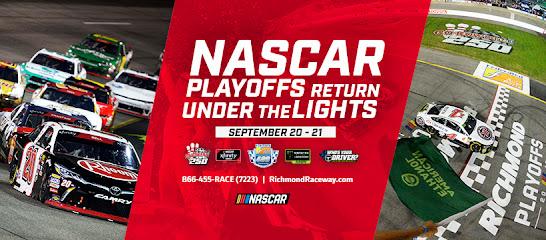
The National
Discover Richmond's vibrant music scene at The National, a historic concert hall showcasing a diverse array of live performances in an intimate setting.
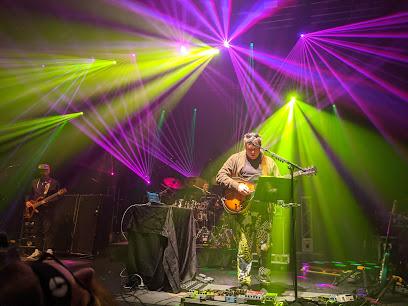
The Poe Museum
Explore the Poe Museum in Richmond, VA, where the haunting legacy of Edgar Allan Poe comes to life through fascinating exhibits and beautiful gardens.
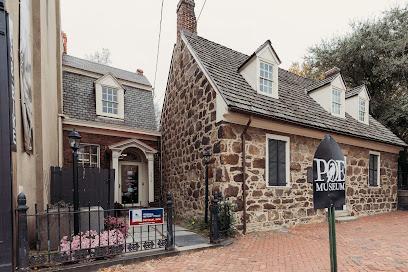
Libby Hill Park
Experience the beauty of Libby Hill Park, a historic gem in Richmond, VA, offering stunning city views, lush landscapes, and a peaceful retreat for all.
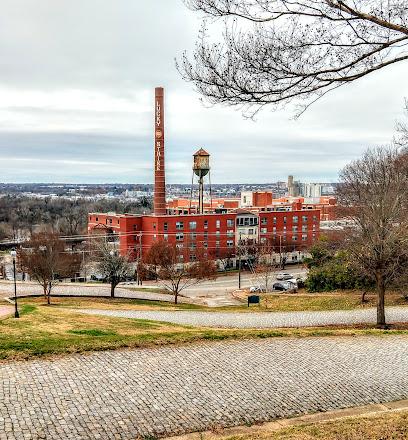
Dominion Energy Center
Experience the vibrant performing arts scene at Dominion Energy Center, a premier venue for concerts and shows in Richmond, Virginia.
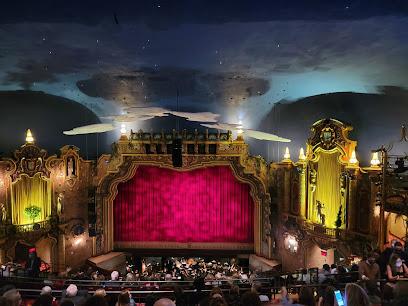
Glen Miller Park
Discover the beauty and tranquility of Glen Miller Park in Richmond, Indiana – a perfect outdoor escape for nature lovers and families.
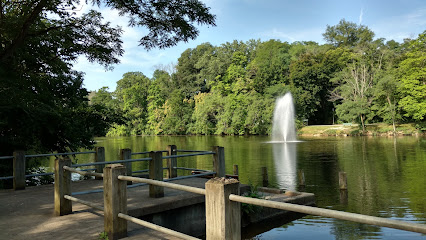
The Robins Nature Center at Maymont
Discover the beauty of nature at The Robins Nature Center at Maymont, a perfect escape for families and nature lovers in Richmond, Virginia.

American Civil War Museum- Historic Tredegar
Explore the American Civil War through engaging exhibits and historical insights at the Historic Tredegar in Richmond, Virginia.
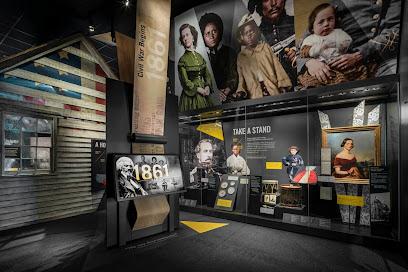
Chimborazo Park
Discover the serene beauty and historical significance of Chimborazo Park in Richmond, Virginia, a must-see destination for nature lovers and history enthusiasts alike.
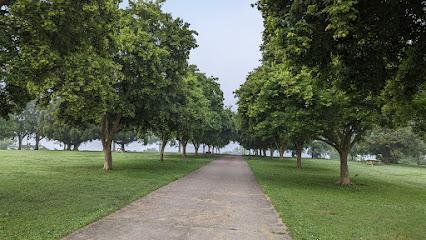
The Veil Brewing Co. - Scott’s Addition
Discover innovative brews and a vibrant atmosphere at The Veil Brewing Co., Richmond's premier craft brewery in Scott's Addition.
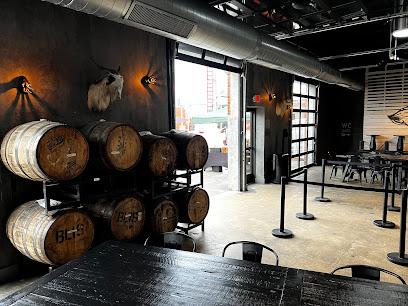
South of the James Market
Explore fresh local produce and artisanal delights at Richmond's vibrant South of the James Market, a true taste of Virginia's culinary heritage.
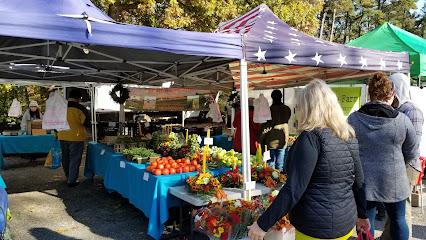
Maymont Farm
Experience the delightful blend of nature and agriculture at Maymont Farm in Richmond, VA, where learning and fun come together amidst beautiful landscapes.

Essential places to dine
Texas Roadhouse
Experience hearty portions and a lively atmosphere at Texas Roadhouse in Richmond, Indiana - your go-to destination for delicious American steak.
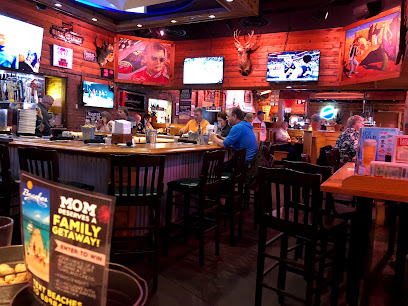
Cracker Barrel Old Country Store
Discover the charm of Southern cuisine at Cracker Barrel Old Country Store in Richmond, IN - where every meal feels like home.
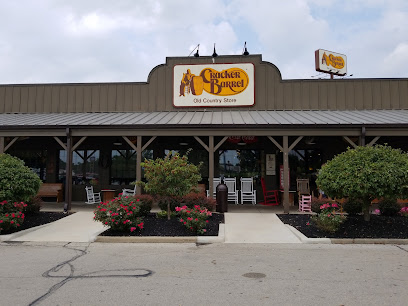
Golden Corral Buffet & Grill
Experience the ultimate buffet at Golden Corral in Richmond - perfect for families with diverse tastes!
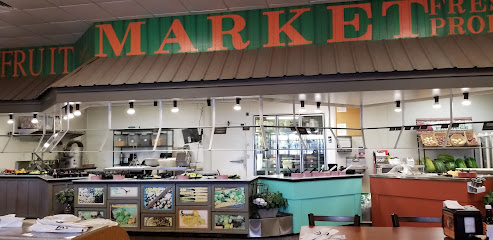
Galo's Italian Grill
Discover authentic Italian-American cuisine at Galo's Italian Grill in Richmond – where every meal is a celebration of flavor.
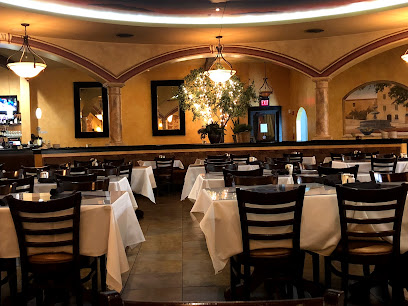
IHOP
Savor delightful breakfast classics at IHOP in Richmond - perfect for families seeking comfort food.
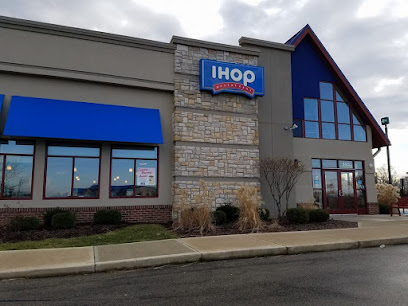
Clara's Pizza King
Experience authentic pizza at Clara's Pizza King in Richmond, Indiana - where quality meets tradition in every slice.
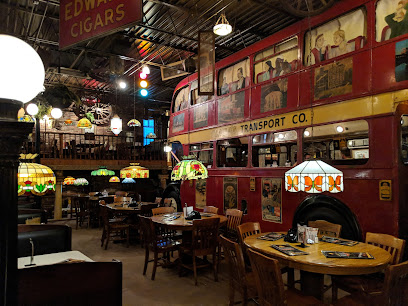
Olive Garden Italian Restaurant
Savor authentic Italian flavors at Olive Garden in Richmond, Indiana – perfect for families and food lovers alike.
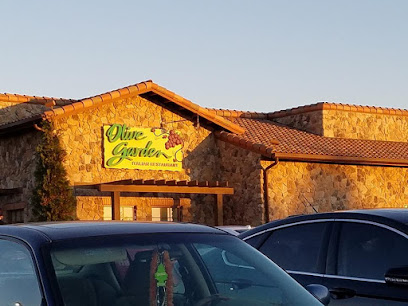
Red Lobster
Discover fresh seafood delights at Red Lobster in Richmond - where family dining meets oceanic flavors.
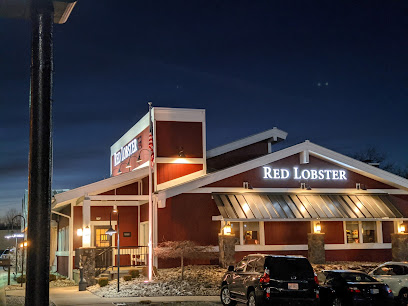
El Rodeo East
Experience authentic Mexican flavors at El Rodeo East in Richmond, Indiana – where every meal is a fiesta!
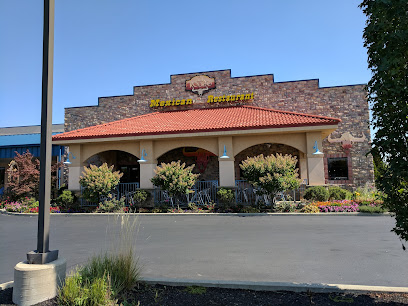
Applebee's Grill + Bar
Discover the flavors of America at Applebee's Grill + Bar in Richmond – where delicious meals meet great company!
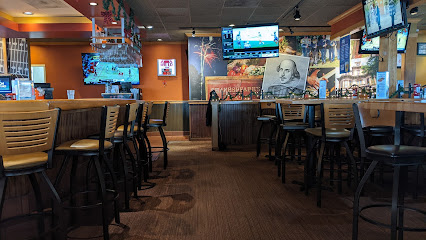
Firehouse BBQ and Blues
Experience authentic barbecue and live blues music at Firehouse BBQ and Blues in Richmond, Indiana - a true taste of Southern hospitality.
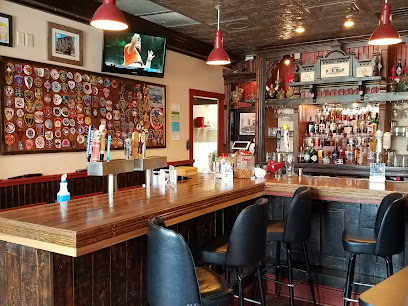
Fricker's
Discover Fricker's in Richmond - where delicious chicken wings meet family fun in a vibrant sports bar atmosphere.
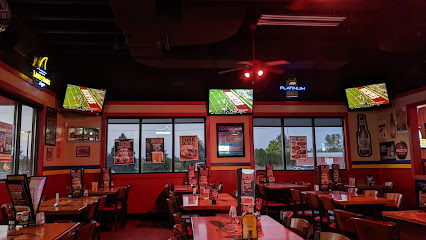
Chili's Grill & Bar
Discover flavorful American and Tex-Mex dishes at Chili's Grill & Bar in Richmond—perfect for families and friends looking for delicious meals.
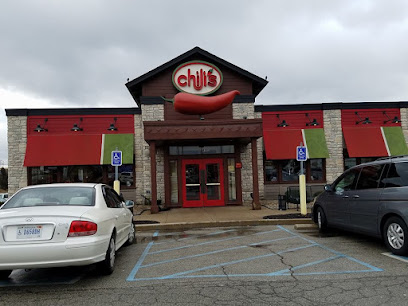
Old Richmond Inn
Discover Old Richmond Inn: A Traditional American Dining Experience in Richmond, Indiana Offering Seafood & Steaks.
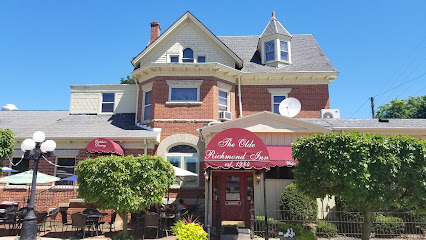
Bob Evans
Experience hearty American comfort food at Bob Evans in Richmond, Indiana - where family-friendly dining meets local flavors.
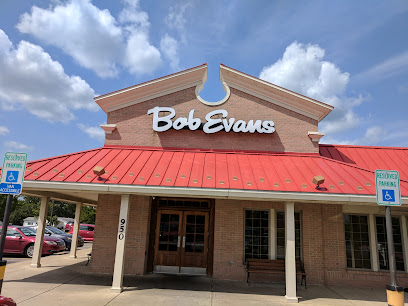
Markets, malls and hidden boutiques
Walmart Supercenter
Explore Walmart Supercenter in Richmond, Indiana, for a convenient shopping experience with great prices on a wide range of products.
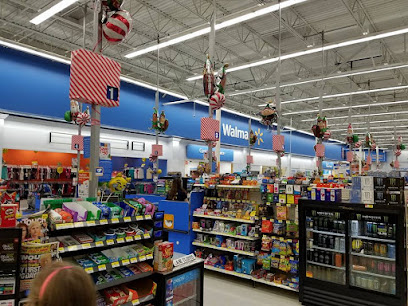
Richmond Mall
Discover Richmond Mall, your one-stop shopping destination in Indiana with top retailers, dining options, and family-friendly entertainment.
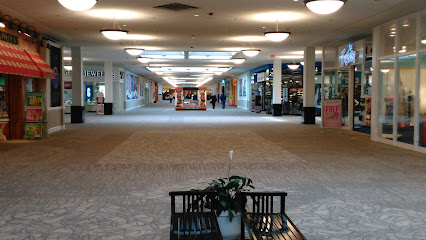
Hobby Lobby
Explore Hobby Lobby, a premier craft store in Richmond, Indiana, offering an extensive selection of art supplies, home decor, and unique seasonal items.
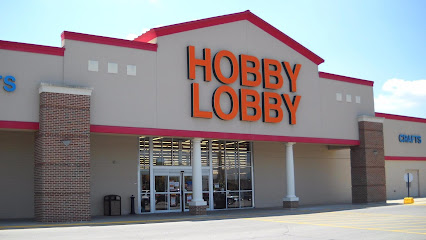
Kohl's
Discover unbeatable deals on clothing, home goods, and more at Kohl's in Richmond, Indiana—your affordable shopping haven.
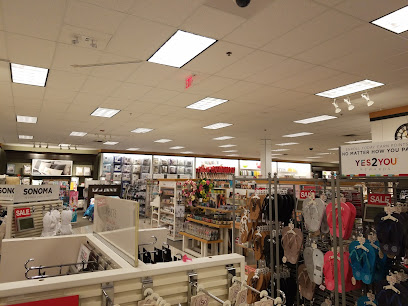
T.J. Maxx
Discover unbeatable deals on fashion and home goods at T.J. Maxx in Richmond, Indiana - a shopper's haven for stylish finds!
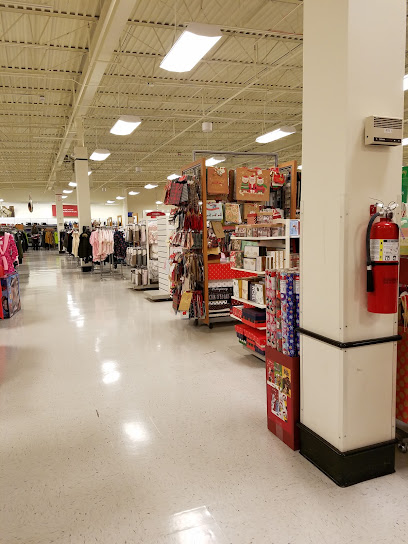
Richmond Bargain Center
Explore the vibrant Richmond Bargain Center for unique finds and local treasures in a lively flea market atmosphere.
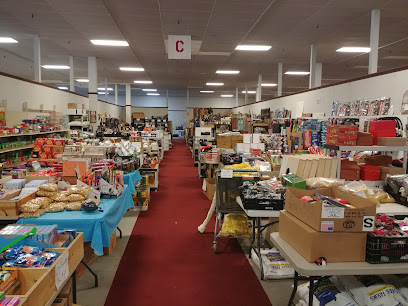
Dillard's
Discover a stylish shopping haven at Dillard's in Richmond, Indiana, offering a vast selection of fashion, cosmetics, and home goods for the discerning shopper.
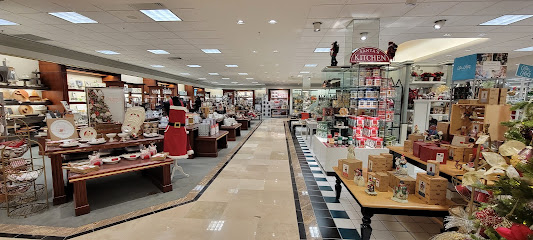
RetroJakes Video Game & Arcade
Experience the ultimate gaming nostalgia at RetroJakes Video Game & Arcade in Richmond, Indiana, where retro meets modern in a vibrant community atmosphere.
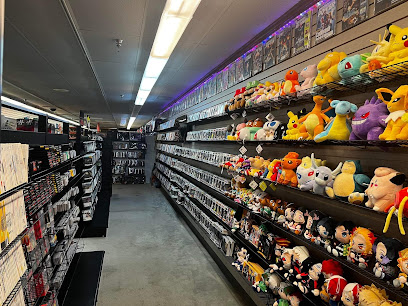
Army Navy Store
Explore the Army Navy Store in Richmond, Indiana, for exceptional military surplus gear, outdoor equipment, and unique memorabilia.
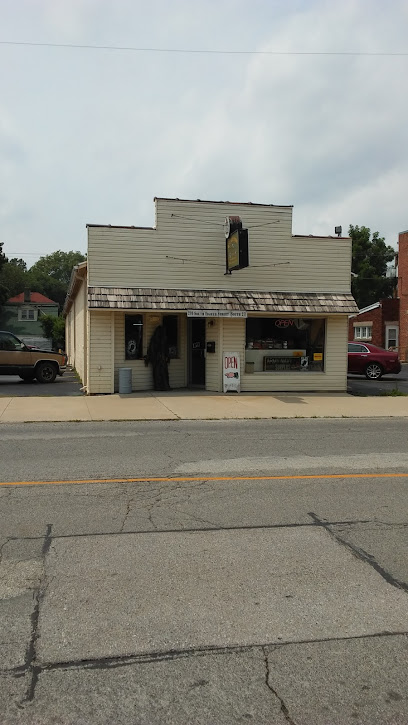
The Bottle Shop
Explore a vast selection of wines, craft beers, and premium spirits at The Bottle Shop in Richmond, Indiana – your go-to destination for quality beverages.
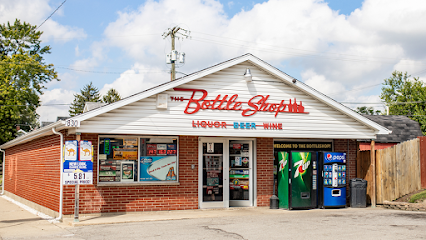
Blast From The Past
Explore Blast From The Past in Richmond, Indiana - a nostalgic video game store with a vast collection of retro and modern gaming treasures.
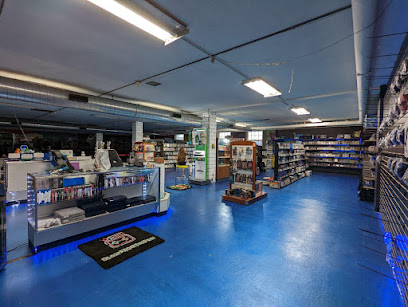
Block Head Records
Explore a diverse collection of vinyl records and music memorabilia at Block Head Records, a must-visit for music lovers in Richmond, Indiana.
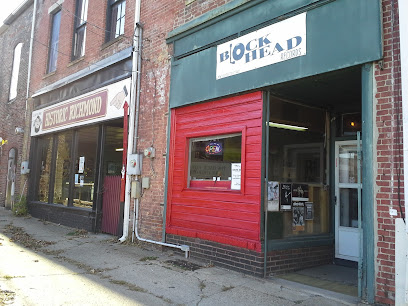
Two Sisters Books & More
Explore the literary treasures at Two Sisters Books & More, a cozy bookstore in Richmond, Indiana, perfect for book lovers and curious minds alike.
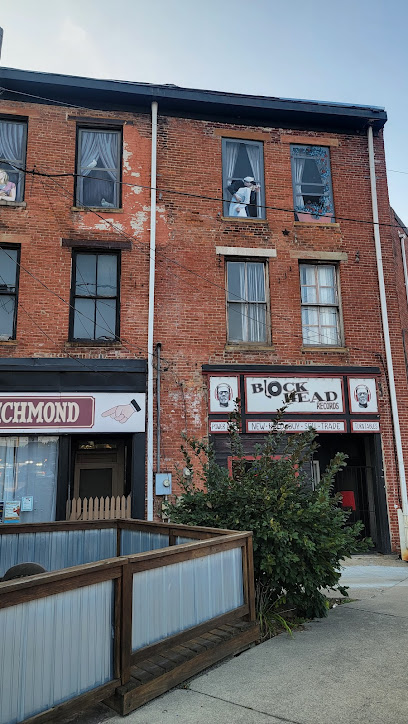
Comic Relief
Explore a treasure trove of comics, toys, and novelty items at Comic Relief, Richmond's beloved comic book store.
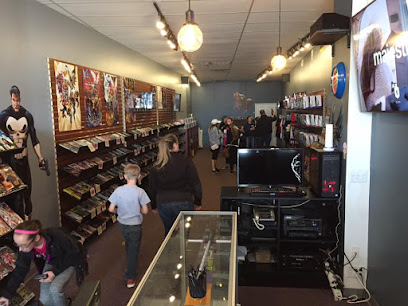
Music Pantry
Discover a musical oasis at Music Pantry in Richmond, Indiana, where instruments, lessons, and a vibrant community await every music lover.
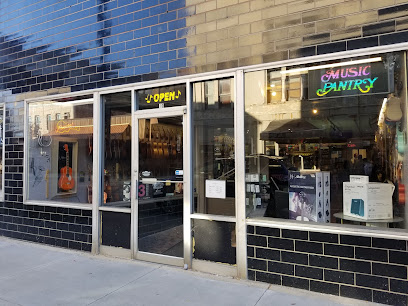
Essential bars & hidden hideouts
Galo's Italian Grill
Explore the delightful flavors of Italy at Galo's Italian Grill in Richmond, Indiana, where every meal is a feast for the senses.
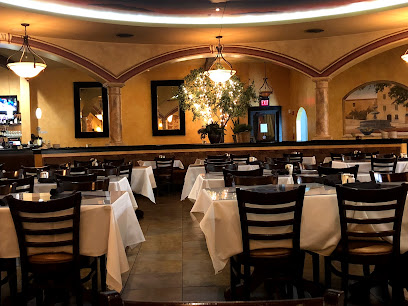
Fricker's
Experience the best chicken wings and family-friendly atmosphere at Fricker's, Richmond's top sports bar and restaurant, perfect for all ages.
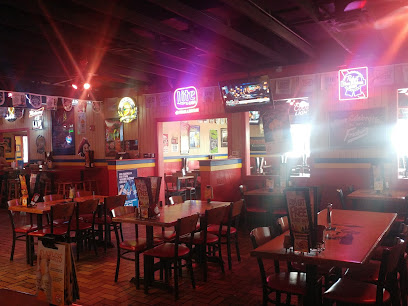
Old Richmond Inn
Discover Old Richmond Inn, where traditional American flavors meet a warm, welcoming atmosphere in the heart of Richmond, Indiana.
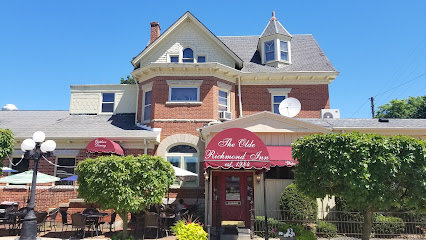
Little Sheba's
Discover Little Sheba's, Richmond's premier American restaurant offering hearty dishes and a welcoming atmosphere perfect for every foodie.
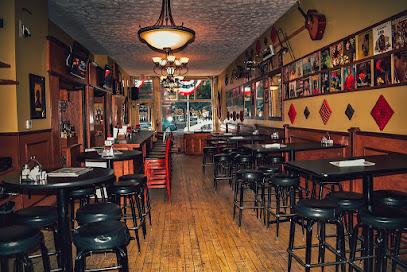
Roscoe's Coffee Bar and Tap Room
Discover Roscoe's Coffee Bar and Tap Room in Richmond, Indiana—a perfect blend of artisanal coffee, craft beer, and a vibrant community atmosphere.
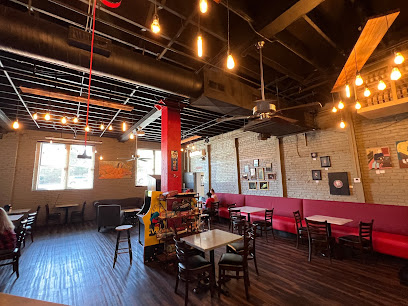
Legends Southside Bar & Grill
Experience the vibrant nightlife at Legends Southside Bar & Grill, a local favorite in Richmond, Indiana, known for its unique decor and welcoming atmosphere.
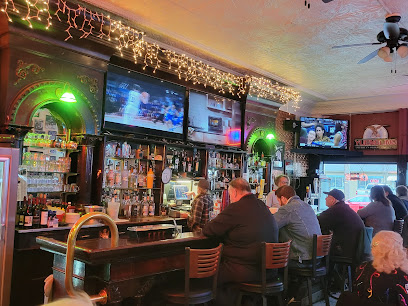
The Cordial Cork
Discover The Cordial Cork, Richmond's premier bar and restaurant, offering local flavors and a vibrant atmosphere for all food and drink enthusiasts.
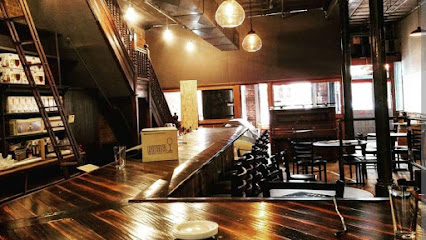
Berties Music Bar
Experience the lively atmosphere of Berties Music Bar in Richmond, where live music meets delicious pizza for an unforgettable night out.
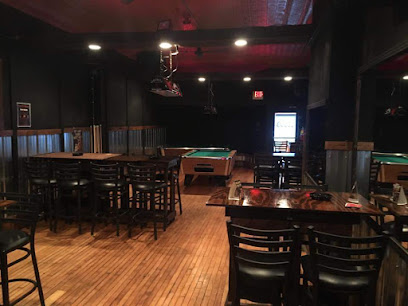
Smiley's Pub
Discover the heart of Richmond at Smiley's Pub, where great food meets a welcoming atmosphere in this classic local pub.
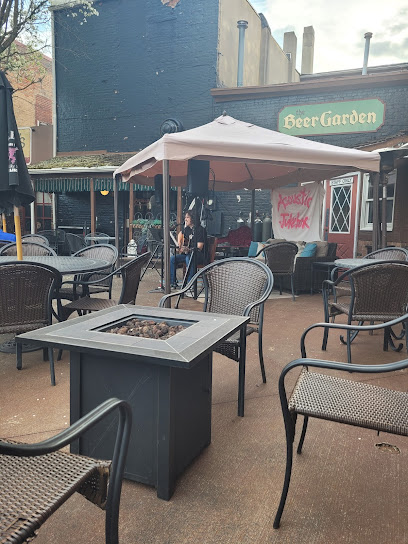
Coney Island Bar
Discover lively nightlife at Coney Island Bar in Richmond, Indiana, where great drinks and a vibrant atmosphere await every visitor.

Generations Grill and Sports Bar
Experience the thrill of sports and delicious food at Generations Grill and Sports Bar in Richmond, Indiana, where friends gather to celebrate every game.
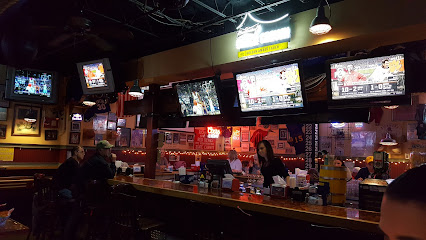
E Street Pub
Experience the vibrant atmosphere and delicious offerings at E Street Pub, Richmond's go-to destination for great food and drinks.
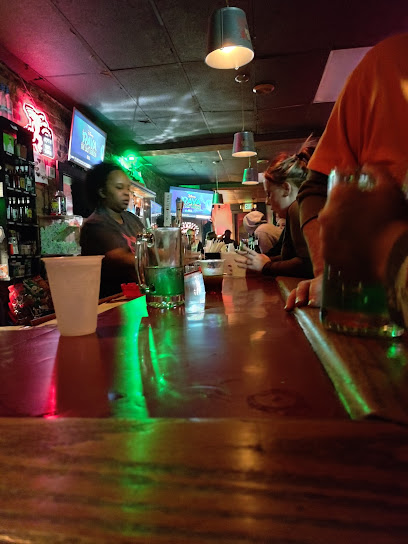
Tally Ho Pub
Experience the vibrant atmosphere and delicious pub fare at Tally Ho Pub in Richmond, Indiana, a local favorite for good food and fun.
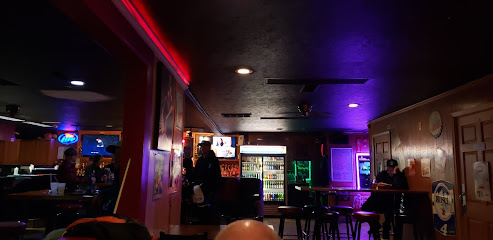
New Boswell Brewery & Tap Room
Discover the lively atmosphere of New Boswell Brewery & Tap Room, where craft beer and live music unite for an unforgettable experience in Richmond, Indiana.
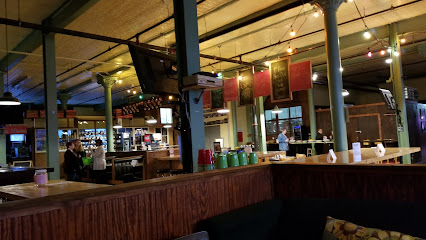
Local Phrases
-
- HelloHowdy
[haw-dee] - GoodbyeSee ya
[see yah] - YesYep
[yep] - NoNah
[nah] - Please/You're welcomePlease and thank ya
[pleez and thank yah] - Thank youMuch obliged
[muhch uh-blahy-jed] - Excuse me/SorryPardon me
[pahr-dn mee] - How are you?Howdy
[haw-dee] - Fine. And you?A-OK. How 'bout you?
[ey-oh-kay. how bout yuh] - Do you speak English?Ya speak English?
[yah speak ing-glish] - I don't understandI'm lost
[ahm lost]
- HelloHowdy
-
- I'd like to see the menu, pleaseCan I check out the menu?
[kan eye chek out thee men-yoo] - I don't eat meatI'm vegetarian
[ahm veh-jeh-ter-ee-un] - Cheers!Bottoms up!
[bot-uhms up] - I would like to pay, pleaseCan I settle up?
[kan eye set-l up]
- I'd like to see the menu, pleaseCan I check out the menu?
-
- Help!I need a hand!
[eye need uh hand] - Go away!Get lost!
[get lost] - Call the Police!Ring up the fuzz!
[ring up thee fuhz] - Call a doctor!Call a doc!
[call uh doc] - I'm lostI'm turned around
[ahm turnd uh-round] - I'm illI'm feelin' under the weather
[ahm feel-in und-er thee weh-thur]
- Help!I need a hand!
-
- I'd like to buy...I reckon I'll take...
[ahm ray-kin ayl take] - I'm just lookingJust browsin'
[just brow-zin] - How much is it?What's the damage?
[wuts thee dam-ij] - That's too expensiveThat's a bit steep
[thats a bit steep] - Can you lower the price?Can ya do any better?
[kan yuh doh any bet-er]
- I'd like to buy...I reckon I'll take...
-
- What time is it?What's the time?
[wuts thee time] - It's one o'clockIt's one
[its wun] - Half past (10)Ten-thirty
[ten-thur-tee] - MorningMornin'
[morn-in] - AfternoonAfternoon
[after-noon] - EveningEvenin'
[ev-ning] - YesterdayYest'day
[yest-dey] - TodayToday
[toh-day] - TomorrowTomorrah
[tuh-mor-ah] - 1One
[wun] - 2Two
[too] - 3Three
[three] - 4Four
[fawr] - 5Five
[fahyv] - 6Six
[siks] - 7Seven
[sev-uhn] - 8Eight
[eyt] - 9Nine
[nahn] - 10Ten
[ten]
- What time is it?What's the time?
-
- Where's a/the...?Where's the...?
[wheres thee] - What's the address?What's the addy?
[whuts thee add-ee] - Can you show me (on the map)?Can ya point it out?
[kan yuh point it out] - When's the next (bus)?When's the next (bus)?
[whens thee nekst bus] - A ticket (to ....)A pass (to ....)
[a pass to]
- Where's a/the...?Where's the...?
History of Richmond
-
Richmond, Indiana, was founded in 1806 by Quaker settlers who migrated from North Carolina. The town was strategically located along the Whitewater River, which provided essential resources and a means for transportation. The early settlers were instrumental in establishing a community that valued education, religion, and social reform.
-
In the early 19th century, Richmond became a critical junction along the National Road, which was the first major improved highway in the United States built by the federal government. This development brought increased commerce, settlers, and travelers to the area, fostering economic growth and making Richmond a key transportation hub.
-
Richmond played a significant role in the Underground Railroad during the mid-1800s. The city's Quaker population and other abolitionist residents provided safe houses and assistance to enslaved African Americans seeking freedom in the North. Historic sites, like the Levi Coffin House, stand as a testament to the bravery and humanitarian efforts of the community.
-
The late 19th and early 20th centuries saw Richmond emerge as an industrial powerhouse. The city became known for its manufacturing of automobiles, pianos, and lawnmowers, among other products. Companies like the Gaar-Scott & Co., which produced steam engines and threshing machines, contributed significantly to the city's economic prosperity.
-
Founded in 1872, the Starr Piano Company became one of Richmond's most prominent businesses. It later established Gennett Records, which played a crucial role in the early recording industry. Gennett Records is famous for producing recordings of early jazz legends like Louis Armstrong, Jelly Roll Morton, and Bix Beiderbecke, thereby cementing Richmond's place in American music history.
-
Richmond has long been a center for cultural and educational advancement. Earlham College, established in 1847 by the Religious Society of Friends (Quakers), has been at the forefront of liberal arts education. The city's commitment to arts and culture is evident in institutions like the Richmond Art Museum, which showcases regional and national art collections.
-
Richmond boasts a rich architectural heritage, with numerous buildings listed on the National Register of Historic Places. The downtown area features well-preserved examples of 19th and early 20th-century architecture, including the Wayne County Courthouse and the Old Richmond Historic District. These structures reflect the city's historical and aesthetic evolution over the years.
-
Today, Richmond is a vibrant city that blends its historical roots with modern amenities. The community continues to celebrate its rich history through annual events, historical tours, and preservation efforts. The city's diverse cultural scene, combined with its educational institutions and historical significance, makes Richmond a unique destination for visitors.
Richmond Essentials
-
Richmond, Indiana is well-connected by various means of transportation. The nearest major airport is Dayton International Airport (DAY), located about 45 minutes east in Ohio. From the airport, you can rent a car or take a shuttle to Richmond. Alternatively, Indianapolis International Airport (IND) is about 1.5 hours west. If you're driving, Richmond is accessible via Interstate 70. For those preferring bus travel, Greyhound provides services to Richmond.
-
Once in Richmond, you can get around using a variety of transportation options. Richmond Transit Service (RTS) offers several bus routes within the city. Taxis and ride-sharing services like Uber and Lyft are also available. For more flexibility, consider renting a car, especially if you plan to explore the surrounding areas. Biking is another viable option, as the city has several bike-friendly routes.
-
The official currency is the US Dollar (USD). Credit and debit cards are widely accepted in most establishments, including restaurants, hotels, and shops. However, it's advisable to carry some cash for smaller vendors or in case of emergencies. ATMs are plentiful, with major banks like Chase, PNC, and U.S. Bank having branches throughout the city.
-
Richmond is generally a safe city for tourists, but like any urban area, it's important to stay vigilant. Avoid walking alone at night in less populated areas, and be cautious in neighborhoods such as the North Side, where crime rates are relatively higher. Always keep an eye on your belongings in crowded places and avoid displaying valuable items openly.
-
In case of emergency, dial 911 for immediate assistance. Richmond has several medical facilities, including Reid Health, which offers comprehensive emergency services. For minor health issues, there are numerous pharmacies where you can purchase over-the-counter medications. It's also a good idea to have travel insurance that covers medical emergencies.
-
Fashion: Do dress casually but neatly. Avoid overly revealing clothing when visiting religious sites. Religion: Do respect local customs. If visiting a church, dress modestly and remain quiet. Public Transport: Do be respectful to other passengers. Don't eat or drink on public transport. Greetings: Do greet people with a friendly 'hello' or 'hi'. A handshake is common in more formal settings. Eating & Drinking: Do try local specialties and accept food offerings graciously. Don't leave a tip in fast-food restaurants, but do tip 15-20% in sit-down eateries.
-
To experience Richmond like a local, visit the Historic Depot District, which offers a variety of shops, restaurants, and historical sites. Engage with the community by attending local events such as the Richmond Farmers Market or the Starr-Gennett Foundation’s music festivals. Don't miss exploring the local trails and parks, especially the Cardinal Greenway, for a scenic walk or bike ride. Visiting the Wayne County Historical Museum can also provide a deeper understanding of the area's rich history.
Trending Landmark in Richmond
-
Glen Miller Park
-
Old Richmond Inn
-
Richmond Parks and Recreation
-
Little Sheba's
-
Thistlethwaite Falls
-
Roscoe's Coffee Bar and Tap Room
-
Richmond 40 Bowl
-
Mancino's Pizza & Grinders
-
Jack Elstro Plaza
-
The Cordial Cork
-
Berties Music Bar
-
Ullery's Homemade Ice Cream
-
Richmond Civic Theatre
-
Springwood Park
-
Richmond Rose Garden
Nearby Cities to Richmond
-
Things To Do in Petersburg
-
Things To Do in Williamsburg
-
Things To Do in Newport News
-
Things To Do in Charlottesville
-
Things To Do in Suffolk
-
Things To Do in Norfolk
-
Things To Do in Waldorf
-
Things To Do in Chesapeake
-
Things To Do in Virginia Beach
-
Things To Do in Lynchburg
-
Things To Do in Staunton
-
Things To Do in Harrisonburg
-
Things To Do in Bethesda
-
Things To Do in Silver Spring
-
Things To Do in Rockville












